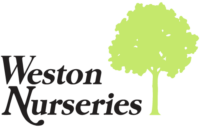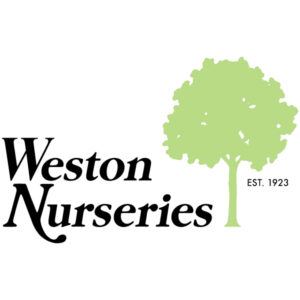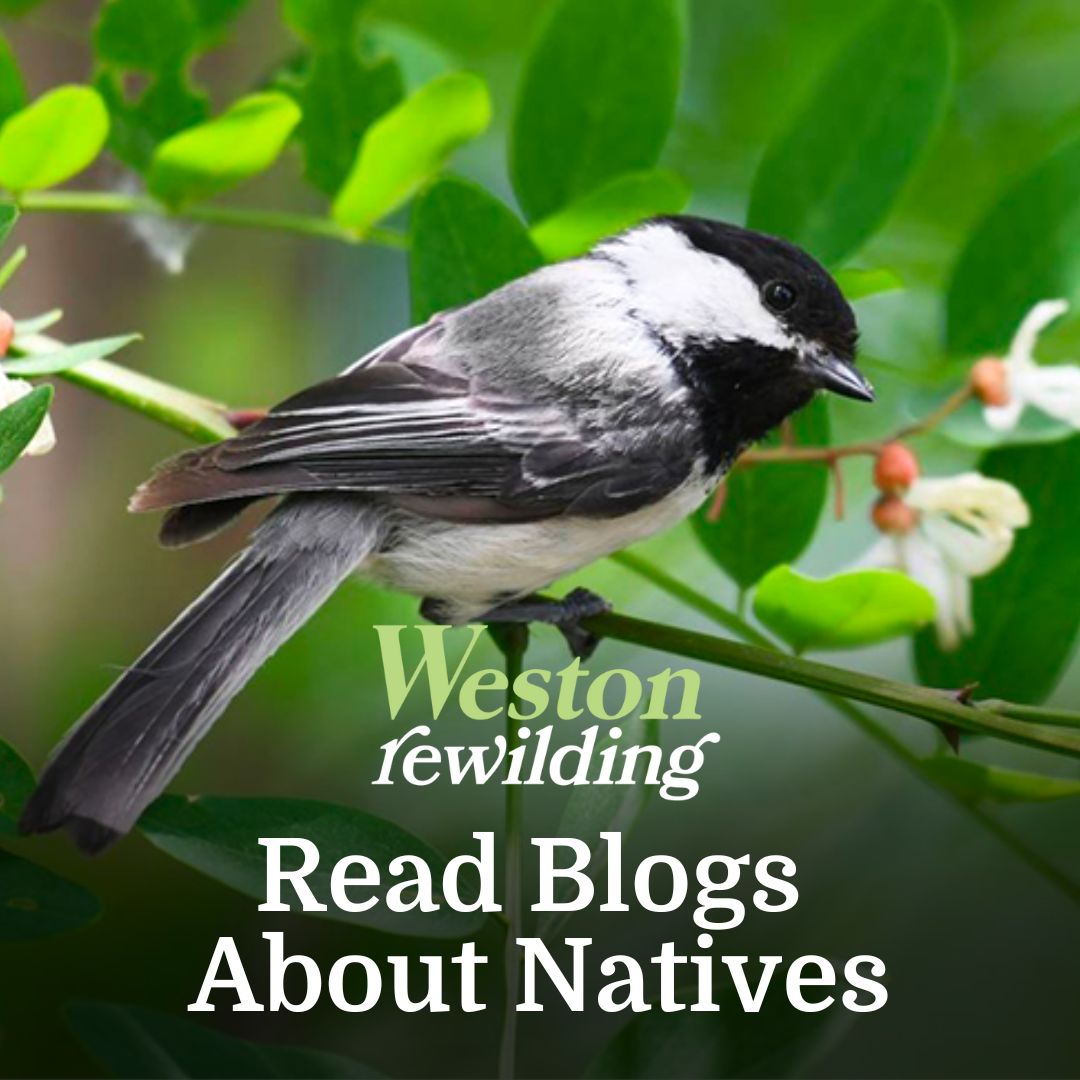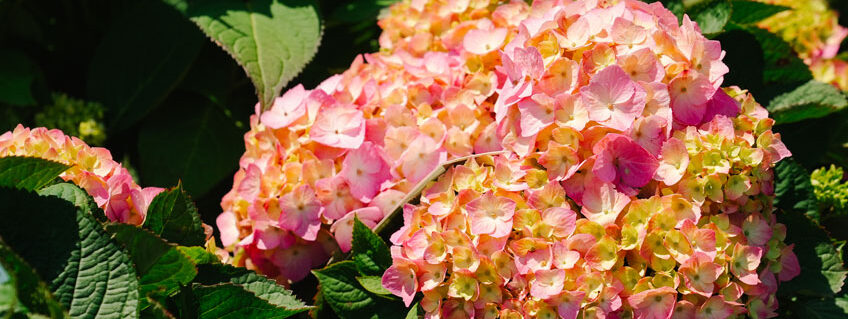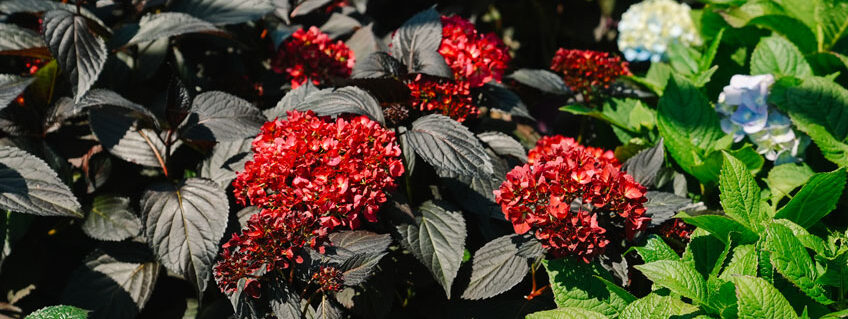“Enjoy the little things, for one day you may look back and realize they were big things.”
– Robert Brault
Most gardeners have become at least a little familiar with some of the helpful insects in their yards. While creepy-crawlies aren’t everyone’s favorite, many kinds of insects are incredibly beneficial and work hard to make your garden a healthier and more vibrant place! Whether they directly support your beloved plants by pollinating them, or protect your garden from pests as natural predators, the health of your entire yard and garden relies heavily on the busy lives of your local bugs.
While most of us are familiar with the benefits of some helpful insects like bees, there are many other guests that are helpful in our gardens, too:
Ladybugs
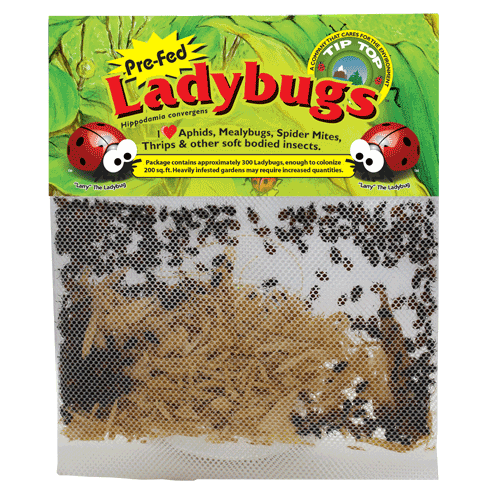
These little beetles have been a favorite of gardeners for many years. They are commonly known under many names, such as Lady Beetle or Ladybird, and are frequently associated with good omens. It’s no wonder that gardeners love to see these cheerful insects working in their garden – not only do these adorable, red beetles bring a smile to your face, but they are a big player in supporting the health of your plants.
Don’t let the cute polka-dot aesthetic of these beetles fool you, though- Ladybugs are keen hunters with nearly insatiable appetites. Their favorite meals are aphids, whiteflies, mites, and scale, among other parasites and soft-bodied insects, all of which are common garden pests. Ladybugs make quick work of these invaders and will devour them happily, providing natural pest control for your plants.
How can you encourage ladybugs to live in your yard? In general they prefer a habitat that has lots of big leaves and stones for them to shelter under, and will even colonize your garden over winter if there are enough nooks and crannies to inhabit. When they aren’t hunting, ladybugs supplement their diet with a variety of pollen types. Particular favorites are fragrant herbs such as dill, chives, and cilantro, or big bright flowers like cosmos, statice, marigolds, sunflowers and zinnias.
If you want an immediate boost to your ladybug population, you can also purchase dehydrated native-species ladybugs from us at Weston Nurseries. You’ll need to refresh them with a little bit of moisture to wake them up and get them ready to hunt; just a light misting of water is usually enough to revive your new friends. They will need some time to adjust to their new home, preferably someplace cool and shady; the ideal time to release your new ladybugs is at dawn or dusk when the temperatures are lower. Don’t force them to make the move – they’ll be happy to explore and fall in love with your garden within a few hours. Of course, once you’ve released your ladybugs, the key to keep them close to home is to make sure you provide a good habitat for them to live in.
Mantids
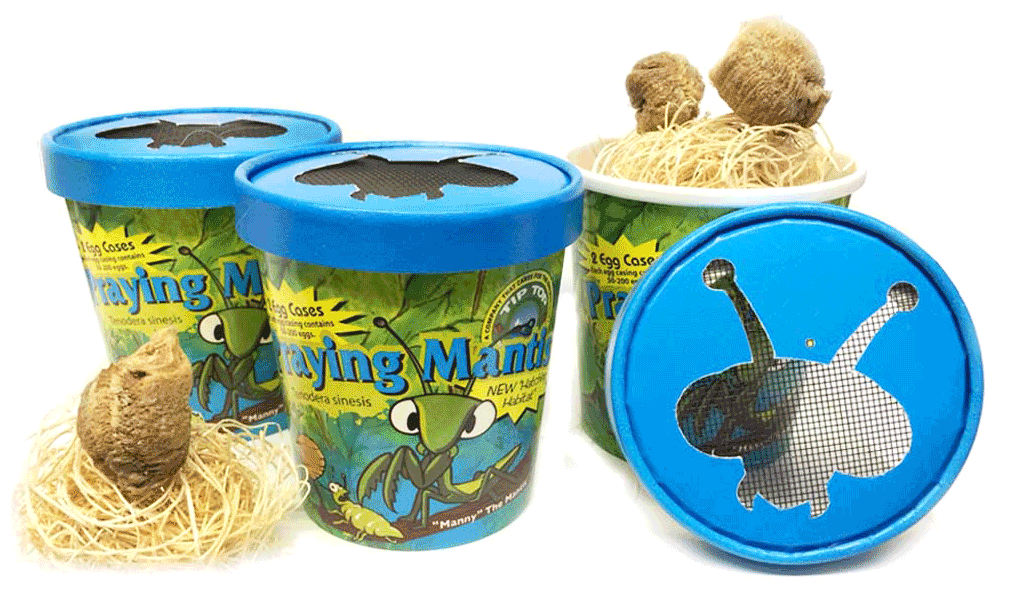
Mantids are the broader family name for what many of us call the “praying mantis.” These insects have an iconic look that many gardeners are familiar with, though not many people realize that they are also amazing tools for pest-control. These hungry predators love to snack on some of the larger insect pests that your garden might struggle with, such as flies, crickets, or moths. Their odd shape and long legs make them swift and agile killers. Mantids will easily camouflage into your garden foliage, surprising their prey. Their quick ambushes make easy meals out of harmful pests without causing any damage to your plants.
To naturally attract mantids to your garden, you can provide them a habitat with lots of warmth and dense foliage. They tend to prefer vegetation that they can use as a hideout while hunting, which also helps them avoid bigger predators that could target them while they are breeding. Here at Weston we often find them lounging on leaves out in our Perennial area, soaking up the sunshine while waiting for prey to stumble along.
If you are having a hard time getting any mantids to make their home in your garden, you can introduce them by purchasing egg cases from our Garden Center. The tiny mantis hatchlings are a special delight for young children to observe and learn about nature.
By Katja Schulz from Washington, D. C., USA (Parasitic Wasp) [CC BY 2.0 (https://creativecommons.org/licenses/by/2.0)], via Wikimedia Commons
Wasps
Wasps have a bad reputation, so it’s hard for many gardeners to imagine wasps as useful insects to have in the garden and would rather avoid them. While their stings can be anything from an inconvenience to a hazard, wasps also have the potential to help boost the health of your garden. They are fairly good pollinators and will help your flowering plants to bloom healthier and more plentiful. They also are excellent predators that help to reduce the number of pests around your home.
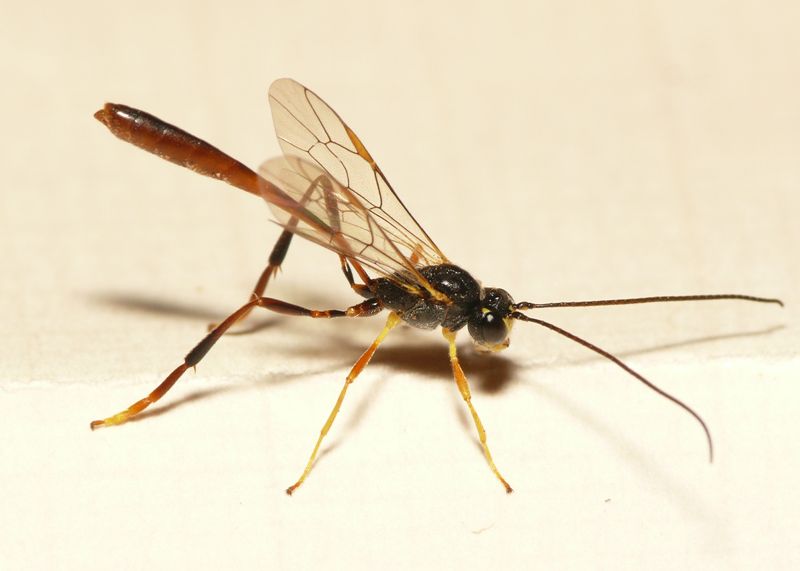
Photo: Dick Belgers
Parasitic wasps are generally harmless to people, even though they come in many sizes and interesting shapes. All are are excellent hunters and are a deadly threat to common garden pests such as aphids, caterpillars, and beetles. They generally kill their prey by paralyzing the insect, bringing it to their nest, and injecting their eggs directly into their victim. One species in particular, Agrypon flaveolatum, has been specifically introduced into areas infested with Winter Moth to help control destructive caterpillar populations with much success.

Other wonderful wasps are digger wasps, such as Scolia bicincta, which will happily go after the grubs in your lawn. One of the first signs you might have a grub problem is if you see these wasps hovering low over the grass in lazy figure eights. Let them do their thing and they won’t bother you. They will focus on the destructive grubs in your yard and help your lawn, as well as prevent those grubs from maturing into Japanese and Asiatic beetles, thereby saving your flower garden as well. They’re also excellent pollinators, when they aren’t out hunting.
To attract these insects, plant an herb garden! Plants with compact clusters of blooms such as dill, cilantro, and fennel are a favorite for friendly wasps. You’ll be surprised to find that your new wasp neighbors are actually quite pretty, flitting from flower to flower in the sun among the other wonderful helper-insects in your garden. Your plants and your lawn will thank you!
We put so much love and effort into our gardens that the invasion of pests can be a nuisance or downright heartbreaking. While many of us are a little reluctant to turn to chemical solutions, inviting some beneficial insects to your own backyard is a healthy and easy way to keep pests under control. These beneficial insects are uninterested in doing any harm to your beloved plants, but are ready to do the work for you to wipe out your pest problem. You’ll be left with a community of supportive insects and a much healthier and happier garden.

